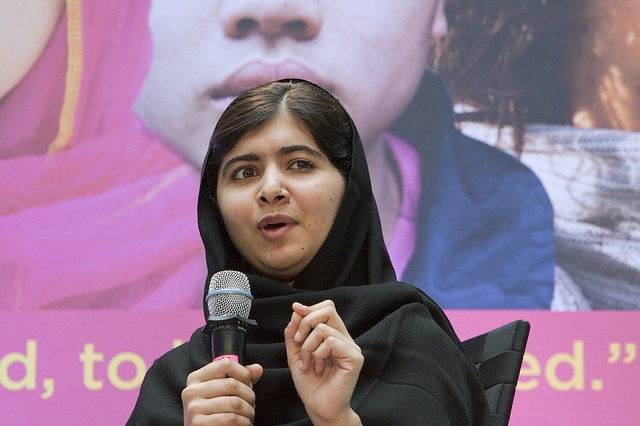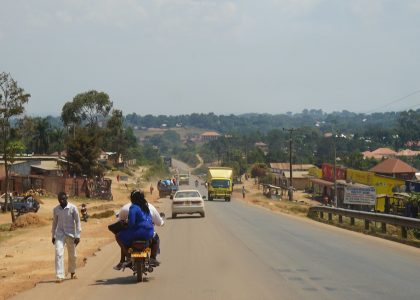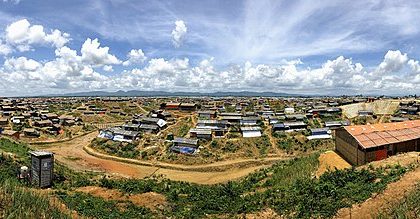Victoria Cann explains the importance of the Day of the Girl Child Campaign and how it will be marked in Norwich.
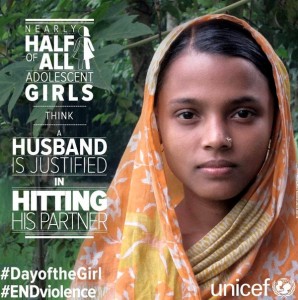
On October the 11th, 2012, the world marked the very first UN International Day of the Girl Child: day aiming to “raise awareness of the situation of girls around the world” for all UN Member States and international organisations as well as civil society. As highlighted within the resolution, some of the goals of the day are economic, considering girls to perform a central role in the economic advancement of developing nations (a sentiment that is not unproblematic – as well articulated within critiques of Nike’s ‘Girl Effect’ campaign). Meanwhile, more promising outcomes of the observance can be found in the focus on human rights, encouraging “the meaningful participation of girls in the decisions that affect them”. A further promising aspect of the resolution can be found in the acknowledgement that it is not only parents and guardians that perform a central role in the empowerment of girls, but also boys, men, and the wider community.
This global recognition of the plight that girls face across the word has not come out of nowhere, alongside the resurgence of interest in feminist politics, academics and community members have looked to girls’ lives and found troubling results. Across the word the picture painted is not a pretty one. Globally there are 65 Million girls that are not in education, 150 million girls under the age of 18 have experienced rape or sexual violence and 39,000 girls are married before their 18th birthday every day. This is not an issue that we can overlook.
In the UK some of these global issues impact the girls in our communities, we just need to look at the lack of prosecutions against FGM perpetrators in this country to see that we really need to open our eyes. But its not just diasporic issues that girls are facing, in the community group that Sarah and I have done it’s been clear to see that girls aren’t doing fine, self-esteem, confidence, body image and peer pressure prevail. A recent report from girlguiding.co.uk reveal startling facts, 1 in 5 girls of primary school age in the UK have been on a diet, 87% of girls think that they are judged more on looks than ability and 47% of 11-14 year olds are opting out of everyday activities such as swimming and speaking out in class because they don’t like how they look. Meanwhile the End Violence Against Women Coalition have found that almost a third of girls experience unwanted sexual touching in UK schools, and 1 in 2 boys & 1 in 3 girls think it is ok sometimes to hit a woman or force her to have sex.
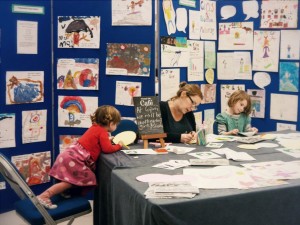
Through observance of the International Day of the Girl Child each October 11th, we are offered a unique opportunity to hold events and engage not only with girls themselves, but also the wider community on the topic of girlhood. As academics, especially as academics of politics, it is our responsibility to be engaging with the public on the issues that we research and are interested in. It would be wrong to say that it is our responsibility to solve these problems for they are far greater than we can imagine, but it also irresponsible to do nothing.
My research into the lives of young people, coupled with my passions for feminist politics has brought me out into the community. We need to get people talking, not just the decision makers, not just the academics but everyone, that’s boys, girls, trans people, adults, toddlers, elderly people, me and you. I don’t go out into the community with the hope that everyone will one day think the way that I do, I’ve met enough anti-feminists to know that this can’t be case! but if we can just encourage people to think about some of these issues, then that’s a start.
To find out more about the Day of the Girl project please do visit our website: www.dayofthegirlnorwich.org and if you’re in the East of England then please do come along to our International Day of the Girl celebrations at The Forum in Norwich city centre. All of our events are free, and there will be activities for grown-ups as well as little ones!
Victoria Cann is Lecturer in Humanities in the Interdisciplinary Institute for the Humanities at the University of East Anglia.
Picture credit: World Bank

